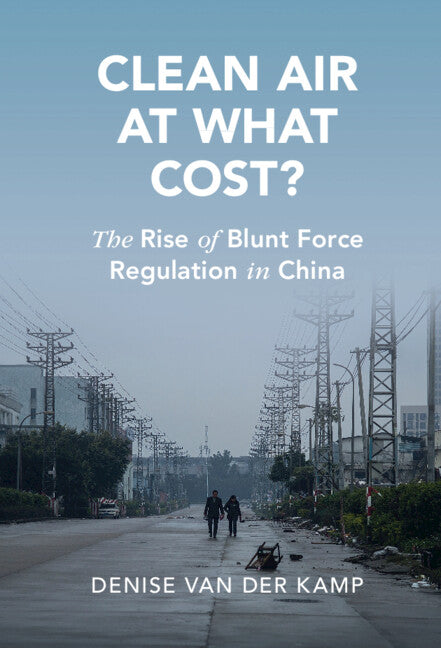Freshly Printed - allow 8 days lead
Couldn't load pickup availability
Clean Air at What Cost?
The Rise of Blunt Force Regulation in China
Why would political leaders shutter entire industries, decimate local economies, and destroy jobs just to clean up the air?
Denise Sienli van der Kamp (Author)
9781009152648, Cambridge University Press
Hardback, published 19 January 2023
300 pages
23.5 x 15.9 x 2 cm, 0.53 kg
China's green transition is often perceived as a lesson in authoritarian efficiency. In just a few years, the state managed to improve air quality, contain dissent, and restructure local industry. Much of this was achieved through top-down, 'blunt force' solutions, such as forcibly shuttering or destroying polluting factories. This book argues that China's blunt force regulation is actually a sign of weak state capacity and ineffective bureaucratic control. Integrating case studies with quantitative evidence, it shows how widespread industry shutdowns are used, not to scare polluters into respecting pollution standards, but to scare bureaucrats into respecting central orders. These measures have improved air quality in almost all Chinese cities, but at immense social and economic cost. This book delves into the negotiations, trade-offs, and day-to-day battles of local pollution enforcement to explain why governments employ such costly measures, and what this reveals about a state's powers to govern society.
1. Introduction: clean air at what cost?
2. Blunt force regulation
3. Why blunt force regulation?
4. Blunt force regulation and bureaucratic control
5. The impact of blunt force regulation
6. What are the alternatives?
7. Managing the risks
8. Comparative implications
9. Conclusion
Appendix
Bibliography
Index.
Subject Areas: Pollution control [TQK], International environmental law [LBBP], Political economy [KCP], Environmental economics [KCN]


